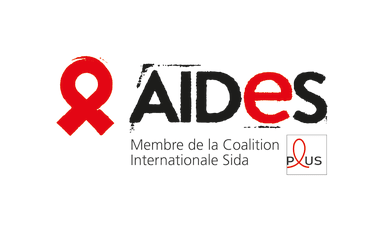Get tested
With AIDES association
 Proposed by AIDES Updated on 7 місяців тому
Proposed by AIDES Updated on 7 місяців томуWe offer free rapid screening tests, called "TROD" (Rapid Diagnostic Test), for HIV (AIDS virus), syphilis, hepatitis C and hepatitis B. Getting tested allows you to know whether you are infected or not.
These tests can be carried out after an interview at our premises or during our actions in different locations.
Why is it interesting?
How to do it?
Lieu d'accueil
9 Rue Gambetta, 58000 Nevers, France
03 86 59 09 48
delegation58@aides.org
2 Avenue Fontaine Argent, 25000 Besançon, France
03 81 81 80 00
delegation25@aides.org
38 Rue Salle le Comté, 59300 Valenciennes, France
03 27 30 22 12
valenciennes@aides.org
2 Rue du Bleu Mouton, 59800 Lille, France
03 28 52 05 10
lille@aides.org
8 Rue d'Après Mannevillette, 76600 Le Havre, France
06 29 40 11 03
lehavre@aides.org
1 Route de Nangis, 77000 Melun, France
09 52 58 68 62
2 Allée Montesquieu, 77186 Noisiel, France
01 60 06 05 05
7 Rue Carnot, 93000 Bobigny, France
01 75 62 50 00
bobigny@aides.org
22 Rue Suger, 93200 Saint-Denis, France
01 41 83 81 60
saintdenis@aides.org
122 Avenue Jean Jaurès, 95100 Argenteuil, France
01 39 80 34 34
argenteuil@aides.org
55 Rue Volant, 92000 Nanterre, France
01 47 21 89 58
nanterre@aides.org
3 Rue Guillaumot, 75012 Paris, France
01 53 33 01 55
paris12@aides.org
51 Boulevard Beaumarchais, 75003 Paris, France
01 53 69 04 06
spotbeaumarchais@aides.org
36 Rue Dussoubs, 75002 Paris, France
01 44 82 53 14
caarud75@aides.org
20 Rue de Moscou, 75008 Paris, France
09 53 16 50 25
paris8@aides.org
25 Route de Brest, 29000 Quimper, France
06 16 01 40 29
quimper@aides.org
63 Rue du Maréchal Foch, 56100 Lorient, France
06 16 01 40 29
lorient@aides.org
42 Rue Noémie Hamard, 53000 Laval, France
02 43 49 24 43
laval@aides.org
75 Avenue François Mitterrand, 72100 Le Mans, France
02 43 23 96 71
lemans@aides.org
11 Square Winston Churchill, 49000 Angers, France
02 41 88 76 00
angers@aides.org
20 Rue Baron, 44000 Nantes, France
02 40 47 99 56
aides44@aides.org
61 Rue de la République, 28300 Mainvilliers, France
02 37 33 07 48
secretariat.centre@aides.org
1 Boulevard Jeanne d'Arc, 86000 Poitiers, France
05 49 42 45 45
vienne@aides.org
9 Avenue Saint-Jean d'Angély, 79000 Niort, France
05 49 17 03 53
deux-sevres@aides.org
19 Rue Buffeterie, 17000 La Rochelle, France
05 46 31 55 36
charente-maritime@aides.org
12 Rue des Boissières, 16000 Angoulême, France
05 45 92 86 77
charente@aides.org
55 Rue Jules Noriac, 87000 Limoges, France
05 55 06 18 19
aides-limousin@aides.org
9 Rue de la Boucherie, 63000 Clermont-Ferrand, France
04 73 99 01 01
contact.auvergne@aides.org
110 Rue Sully, 69006 Lyon, France
04 78 68 05 05
rhone.alpes@aides.org
25 Avenue Jean Jaurès, 01000 Bourg-en-Bresse, France
04 74 24 64 34
bourg-en-bresse@aides.org
11 Rue Paul Bert, 74100 Annemasse, France
06 01 20 10 09
annemasse@aides.org
18 Avenue de la Mandallaz, 74000 Annecy, France
06 14 50 47 97
annecy@aides.org
8 Rue Sergent Bobillot, 38000 Grenoble, France
04 76 47 20 37
grenoble@aides.org
51 Allée du Port, 24000 Périgueux, France
05 53 54 32 01
dordogne@aides.org
6 Quai de Paludate - Château Descas, 33800 Bordeaux, France
05 57 87 77 77
gironde@aides.org
6 Rue Chaudordy, 47000 Agen, France
06 20 90 31 48
lot-et-garonne@aides.org
3 Avenue Maréchal Harispe, 64100 Bayonne, France
05 59 55 41 10
pays-basque@aides.org
4 Avenue du 18ème Régiment d'Infanterie, 64000 Pau, France
05 59 83 92 93
bearn@aides.org
16 Avenue Etienne Billières, 31300 Toulouse, France
05 34 31 36 60
toulouse@aides.org
17 Avenue Julien Panchot, 66000 Perpignan, France
04 68 35 57 36
perpignan@aides.org
54 Avenue Georges Clemenceau, 34500 Béziers, France
04 67 28 54 82
beziers@aides.org
40 Rue de la République, 30900 Nîmes, France
04 66 76 26 07
nimes@aides.org
6 Rue Saint-Vincent, 30100 Alès, France
04 66 30 55 58
ales@aides.org
41 Rue du Portail Magnanen, 84000 Avignon, France
04 90 86 80 80
aides84avignon@aides.org
93 Boulevard de Strasbourg, 13003 Marseille, France
09 64 42 13 16
aidesmarseille@wanadoo.fr
24 Rue Amiral Nomy, 83000 Toulon, France
04 94 62 96 23
toulon@aides.org
29 Rue Delille, 06000 Nice, France
04 93 55 90 35
delegation06@aides.org
Chem. des Bougainvillers, Basse-Terre 97100, Guadeloupe
05 90 60 49 50
aides.stmartin.guadeloupe@gmail.com
Rue de Spring, Marigot 97150, Saint-Martin
05 90 58 65 23
apottier@aides.org
Av. du Lieutenant-Colonel Chandon, Saint-Laurent-du-Maroni, Guyane française
05 94 27 94 25
stlaurentdumaroni@aides.org
Rue du Lieutenant Ferrand, Maripasoula, Guyane française
06 94 24 21 25
stlaurentdumaroni@aides.org
39 Rue Garnier Pagès, Fort-de-France 97200, Martinique
05 96 60 96 59
bdhellin@aides.org
9 Place Émile Zola, 21000 Dijon, France
03 45 58 26 89
dijon@aides.org
16 Rue Alexandre Ribot, 29200 Brest, France
02.98.80.41.27 / 06.80.66.78.52 / 06.34.55.29.06
brest@aides.org
43 Rue Saint-Hélier, 35000 Rennes, France
02.99.30.01.30 / 06 69 45 15 82
rennes@aides.org
166 Rue la Barrière Saint-Marc, 45000 Orléans, France
02 38 53 30 31
secretariat.centre@aides.org
310 Rue d'Entraigues, 37000 Tours, France
02 47 38 43 18
secretariat.centre@aides.org
2 Avenue Gambetta, 88000 Épinal, France
03 29 35 68 73
delegation88@aides.org
66 Rue Stanislas, 54000 Nancy, France
03 83 35 32 32
delegation54@aides.org
19a Rue Engel Dollfus, 68200 Mulhouse, France
03 89 45 54 46
delegation68@aides.org
9 Place de L Hôpital, 67000 Strasbourg, France
06 02 17 88 17
delegation67@aides.org
29 Avenue Foch, 57000 Metz, France
03 87 75 10 42
delegation57@aides.org
7 Rue des Hautes Cornes, 80000 Amiens, France
03 22 91 62 69
amiens@aides.org
37 Rue du Barbâtre, 51100 Reims, France
03 26 09 38 38
delegation51@aides.org
23 Rue du Fardeau, 76000 Rouen, France
02 35 07 56 56
rouen@aides.org
16 Boulevard d'Orient, 34070 Montpellier, France
04 67 34 03 76
montpellier@aides.org
3 Boulevard Longchamp, 13001 Marseille, France
04 91 14 05 15
marseille@aides.org
21 Rue des Primevères, 85000 La Roche-sur-Yon, France
02 51 47 78 88
larochesuryon@aides.org
16 Rue de Juvisy, 91200 Athis-Mons, France
01 60 48 72 82
bmampouya@aides.org
11 Rue Louise Michel, 94600 Choisy-le-Roi, France
01 42 83 44 40
aides94@aides.org
99 Rue de Meaux, 75019 Paris, France
01 40 18 17 53
paris19@aides.org
15 contributors mobilized
 xavidum
xavidumAdmin
 diplosamTranslator
diplosamTranslator basheer al ghothaniTranslator
basheer al ghothaniTranslator noorTranslator
noorTranslator olga b.Translator
olga b.Translator niknameTranslator
niknameTranslator rohullah expertTranslator
rohullah expertTranslator zibelineTranslator
zibelineTranslator kim.delaunayTranslator
kim.delaunayTranslator maddie bTranslator
maddie bTranslator utilisateur_72712685Writer
utilisateur_72712685Writer shadiTranslator
shadiTranslator marianneukraineTranslator
marianneukraineTranslator anastasiaTranslator
anastasiaTranslator aidesWriter
aidesWriter
